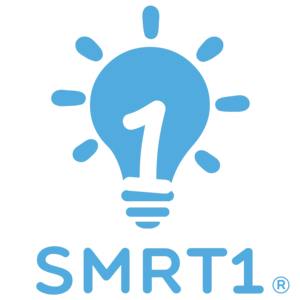Data security is a critical consideration for any connected technology, including smart vending machines. As these systems collect transaction information, usage patterns, and in some cases, interact with payment systems, protecting this data is paramount. SMRT1 takes a comprehensive, multi-layered approach to data security in all of our smart vending solutions, implementing robust protections at every level from the hardware to the cloud. This is especially important in healthcare applications, where privacy concerns are heightened and regulatory requirements are strict. This page outlines the various security measures that ensure data collected by SMRT1 smart vending machines remains protected.
SMRT1 smart vending machines incorporate multiple layers of security to protect data at every stage of its lifecycle. From the secure Linux operating system and encrypted communications to the strict personal data policies and robust cloud infrastructure, security is built into every aspect of the system. Additional physical security measures protect the hardware itself, while ongoing security management ensures protection against emerging threats.
For healthcare applications, these comprehensive security measures are particularly important. SMRT1 CARE PODs enable healthcare organizations to extend services beyond traditional settings while maintaining the high standards of data protection that patients and providers expect. The ability to provide anonymous access to health supplies while still collecting valuable (but anonymized) data for public health planning represents a powerful balance of privacy and utility.
By choosing SMRT1 smart vending solutions, organizations gain not just innovative dispensing technology, but a secure platform designed to protect sensitive data through industry-standard encryption, minimal data collection practices, and ongoing security management. Whether deployed in retail environments or healthcare settings, SMRT1 smart vending machines protect data through a comprehensive, multi-layered security approach that addresses both digital and physical threats.
Encryption and Data Protection
All data stored or transmitted by SMRT1 smart vending machines is protected with industry-standard 256-bit encryption. This level of encryption is the same security standard used by financial institutions and government agencies for sensitive information. The encryption applies to:
Transactional Data: Any record of purchases or interactions with the machine is encrypted both during transmission and storage.
System Communications: All communication between the vending machine and the SMRT1 Cloud platform is encrypted, creating a secure tunnel for data transfer that prevents interception or tampering.
Configuration Settings: Even machine settings and operational parameters are encrypted to prevent unauthorized changes to the system’s functionality.
This encryption ensures that even in the highly unlikely event of unauthorized access to data, the information would be unusable without the proper decryption keys, which are themselves securely managed through robust key management protocols.
Secure Operating System
SMRT1 smart vending machines run on a secure Linux operating system rather than Windows. This architectural choice significantly enhances security for several reasons:
Reduced Attack Surface: Linux systems typically have fewer vulnerabilities than Windows environments, particularly in embedded applications like vending machines. The streamlined Linux implementation used in SMRT1 machines includes only the necessary components, minimizing potential security gaps.
Open Source Security: The open source nature of Linux means security issues are identified and patched quickly by a global community of developers. This contrasts with proprietary systems where vulnerabilities might remain unaddressed for longer periods.
Customized Security Hardening: SMRT1’s Linux implementation is specifically hardened for vending applications, with unnecessary services disabled, default credentials removed, and security-focused configurations applied.
Regular Security Updates: The operating system receives regular security patches and updates, which can be applied remotely to maintain protection against emerging threats without requiring physical access to the machine.
The choice of Linux over Windows, which is more commonly targeted by malware and often used in traditional vending systems, represents a fundamental security advantage in SMRT1’s architecture. For healthcare applications, this reduced vulnerability to common exploits is particularly important when machines may be handling sensitive operations.
Personal Data Policies
A fundamental principle of SMRT1’s data security approach is minimizing the collection and storage of personally identifiable information (PII):
No PII Storage on Machines: As stated in the original content, SMRT1 POD smart vending machines do not store any personal identifying information on the physical devices. This means that even if a machine were physically compromised, no personal customer data would be accessible.
Payment Information Protection: Credit card numbers and other payment details are never stored on the vending machine. Payment processing uses tokenization and follows PCI DSS (Payment Card Industry Data Security Standard) protocols to ensure cardholder data is protected.
Anonymized Analytics: While machines do collect usage data for analytics purposes, this information is anonymized, removing any connection to specific individuals before analysis or reporting.
Opt-in for Additional Features: Any features that might require personal information, such as loyalty programs or personalized recommendations, are strictly opt-in and clearly disclosed to users.
Data Minimization: Even when personal information is processed (such as during a transaction), only the minimum necessary data is used, and it’s retained only for the duration required to complete the operation.
This approach to personal data aligns with privacy best practices and helps protect user privacy while still enabling the valuable analytics capabilities that make smart vending machines effective. For healthcare applications, this privacy-first approach is particularly crucial, as it allows health-related items to be dispensed without creating records that could be considered sensitive health information.
Physical Security Measures
Data security extends beyond software to include physical protections for the machines themselves:
Tamper-Resistant Hardware: SMRT1 PODs are designed with tamper-resistant components that help detect and prevent unauthorized physical access to internal systems.
Secure Component Architecture: Critical components like the payment processing module and main computer are physically isolated and protected within the machine’s structure.
Encrypted Storage Media: Internal storage is encrypted at the hardware level, meaning that even if storage components were physically removed from the machine, the data would remain protected.
Access Logging: Any authorized physical access to the machine’s internal components is logged, creating an audit trail of maintenance and service activities.
Alarm Systems: Unauthorized access attempts can trigger alerts to system administrators, enabling rapid response to potential security breaches.
These physical security measures complement the digital protections, creating a comprehensive security envelope around both the machine and its data. For healthcare deployments, where machines may dispense controlled substances or high-value health supplies, these physical security features provide an additional layer of protection against tampering or theft.
Cloud Security Infrastructure
The SMRT1 Cloud platform, which connects to and manages smart vending machines, employs enterprise-grade security measures:
Advanced Threat Protection: As mentioned in the original content, SMRT1 Cloud services are protected by SentinelOne cybersecurity, an advanced endpoint protection platform that uses AI and machine learning to detect and respond to threats in real-time.
Secure Data Centers: Cloud infrastructure is hosted in secure, certified data centers with physical access controls, environmental protections, and redundant systems to ensure both security and availability.
Network Security: Multiple layers of network security, including firewalls, intrusion detection systems, and network segmentation, protect cloud infrastructure from unauthorized access.
Regular Security Audits: The cloud platform undergoes regular security assessments and penetration testing by independent security experts to identify and address potential vulnerabilities.
Data Backups: Secure, encrypted backups ensure that data can be recovered in the event of a system failure without compromising security.
The robust cloud security infrastructure ensures that data remains protected not just on the vending machines themselves, but throughout its lifecycle in the SMRT1 ecosystem. For healthcare applications, this end-to-end security is essential for maintaining the trust of healthcare providers and the patients they serve.
Healthcare Applications
The security features of SMRT1 vending machines are particularly important in healthcare contexts, where they may handle sensitive operations or dispense healthcare-related items:
Health Information Protection: SMRT1 CARE PODs deployed for healthcare applications incorporate additional protections aligned with healthcare privacy standards. While the machines don’t collect or store protected health information (PHI), they’re designed with these standards in mind.
Anonymous Health Supply Access: For applications like harm reduction, where users may access items like naloxone kits or safe injection supplies, the system is designed to maintain complete anonymity while still collecting valuable aggregate usage data for public health planning.
Secure Telehealth Integration: When CARE PODs include telehealth features, all video and audio communications are encrypted end-to-end, ensuring private consultations remain confidential.
Healthcare-Specific Authentication: For prescription medication dispensing or similar applications, additional authentication mechanisms can be implemented without compromising overall security, such as secure one-time codes or integration with electronic health record systems.
Role-Based Access Controls: In healthcare deployments, administrative access to machine data and settings can be restricted based on roles, ensuring that only authorized healthcare staff can access specific functions or information.
These healthcare-specific security features make SMRT1 CARE PODs suitable for sensitive health applications where both security and privacy are paramount. The technology enables healthcare organizations to extend services beyond traditional settings without compromising on data protection.
Compliance and Standards
SMRT1’s data protection approach is designed to meet or exceed relevant industry standards and regulatory requirements:
PCI DSS Compliance: For payment processing, SMRT1 systems adhere to Payment Card Industry Data Security Standards, ensuring proper handling of payment information.
GDPR Considerations: While primarily focused on North American markets, SMRT1’s data minimization approach and privacy-by-design principles align with global standards like the General Data Protection Regulation (GDPR).
Healthcare Standards Alignment: For healthcare deployments, SMRT1 systems incorporate security controls that support compliance with relevant healthcare regulations, without actually storing protected health information.
Industry Best Practices: Beyond specific regulations, SMRT1 follows industry best practices for encryption, access control, and secure software development established by organizations like NIST (National Institute of Standards and Technology).
Certification and Validation: SMRT1’s security measures undergo regular validation and, where applicable, certification to ensure they meet recognized standards for data protection.
This compliance-oriented approach provides customers with confidence that SMRT1 vending solutions meet recognized security standards appropriate for their industry and application.
Ongoing Security Management
Data security is not a one-time implementation but an ongoing process that requires continuous attention and improvement:
Proactive Monitoring: SMRT1 employs continuous security monitoring for both cloud systems and vending machine networks, allowing for rapid detection of potential security issues.
Regular Security Updates: Software and firmware on SMRT1 devices receive regular security updates to protect against newly discovered vulnerabilities. These updates can be deployed remotely without interrupting service.
Vulnerability Management: A structured vulnerability management program identifies, prioritizes, and addresses potential security weaknesses before they can be exploited.
Incident Response Planning: Comprehensive incident response procedures are in place to ensure swift and effective action in the unlikely event of a security breach.
Security Training: SMRT1 team members who develop, maintain, or support the systems undergo regular security training to ensure security best practices are followed throughout the organization.
Threat Intelligence: SMRT1 stays informed about emerging security threats and attack methods, particularly those that might target IoT or vending systems, allowing for proactive protection.
Third-Party Security Assessments: Independent security experts regularly evaluate SMRT1’s systems and processes to provide objective assessment and recommendations for continuous improvement.
This ongoing security management ensures that SMRT1 vending machines remain protected against evolving threats throughout their operational life. For healthcare deployments, where machines may be in service for many years, this commitment to ongoing security is essential for maintaining trust and compliance.

